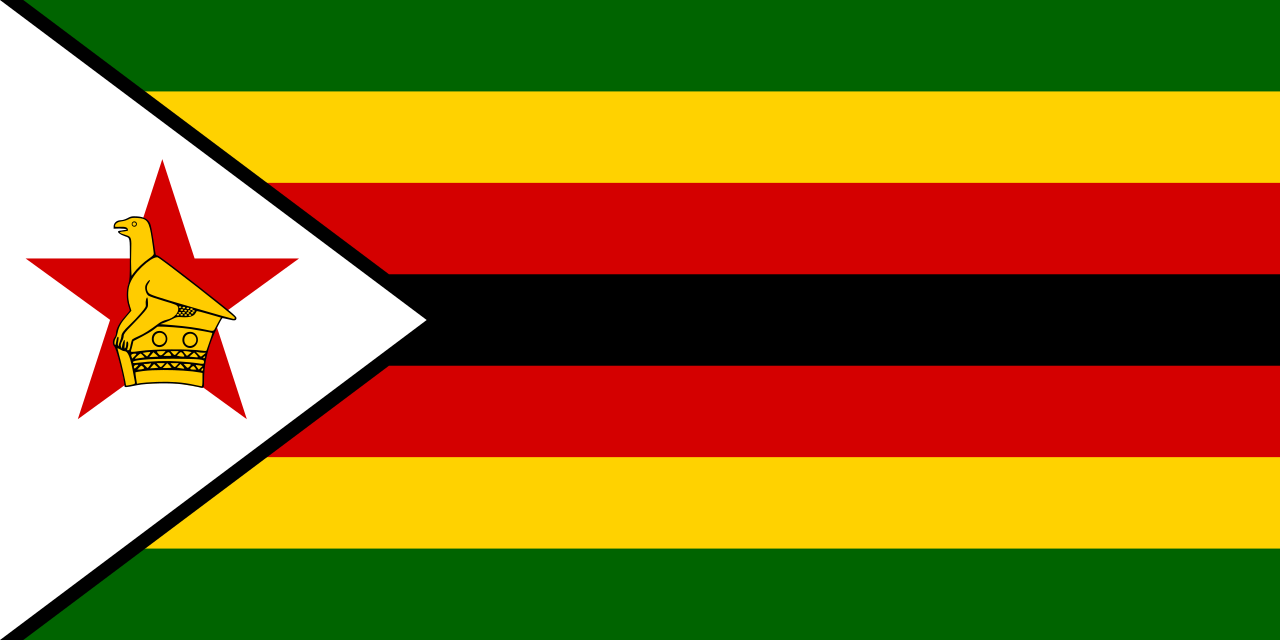The UK annexed Southern Rhodesia from the former British South Africa Company in 1923. A 1961 constitution was formulated that favored whites in power. In 1965 the government unilaterally declared its independence, but the UK did not recognize the act and demanded more complete voting rights for the black African majority in the country (then called Rhodesia). UN sanctions and a guerrilla uprising finally led to free elections in 1979 and independence (as Zimbabwe) in 1980. Robert MUGABE, the nation's first prime minister, has been the country's only ruler (as president since 1987) and has dominated the country's political system since independence. His chaotic land redistribution campaign, which began in 1997 and intensified after 2000, caused an exodus of white farmers, crippled the economy, and ushered in widespread shortages of basic commodities. Ignoring international condemnation, MUGABE rigged the 2002 presidential election to ensure his reelection.
In April 2005, the capital city of Harare embarked on Operation Restore Order, ostensibly an urban rationalization program, which resulted in the destruction of the homes or businesses of 700,000 mostly poor supporters of the opposition. MUGABE in June 2007 instituted price controls on all basic commodities causing panic buying and leaving store shelves empty for months. General elections held in March 2008 contained irregularities but still amounted to a censure of the ZANU-PF-led government with the opposition winning a majority of seats in parliament. Movement for Democratic Change - Tsvangirai opposition leader Morgan TSVANGIRAI won the most votes in the presidential poll, but not enough to win outright. In the lead up to a run-off election in June 2008, considerable violence against opposition party members led to the withdrawal of TSVANGIRAI from the ballot. Extensive evidence of violence and intimidation resulted in international condemnation of the process. Difficult negotiations over a power-sharing "government of national unity," in which MUGABE remained president and TSVANGIRAI became prime minister, were finally settled in February 2009, although the leaders failed to agree upon many key outstanding governmental issues. MUGABE was reelected president in June 2013 in balloting that was severely flawed and internationally condemned. As a prerequisite to holding the election, Zimbabwe enacted a new constitution by referendum, although many provisions in the new constitution have yet to be codified in law.
Zimbabwe is semi-presidential republic.
Source: CIA World Factbook
Members:
Resources
Displaying 51 - 55 of 59Hippo Valley Agreement Act [Cap. 20:08].
This Act is repealed by Section 8 of the Land Acquisition Amendment Act 1 of 2004. Notwithstanding any condition contained in any agreement of lease, or sale or other disposition between the Hippo Valley Estates Limited or its successors in title and any person in respect of land transferred to it or under its control in terms of the agreement set out in the Schedule to the repealed Act, or contained in any title deed in respect of such land, the State may, in terms of the principal Act, compulsorily acquire as agricultural land required for resettlement purposes any such land.
Farmers Stop-order Act [Chapter 18:11].
This Act concerns: (a) any written agreement or undertaking executed by a farmer whereunder the farmer: (i) purports to give to the holder (defined in section 2) any right, title or interest in or over the whole or part of any crop which has been, is being or is to be grown or produced in Zimbabwe or the proceeds thereof; and (ii) authorizes any person to pay to the holder the whole or part of the proceeds of such crop (“stop-order”); and (b) an unregistered stop-order which has been executed by a farmer who farms within Communal Land or within such other area as may be prescribed and of wh
Inner Bank Titles Act [Chapter 20:09].
This Act concerns the ownership of so-called “inner banks”. Section 2 makes provision for the definition of boundaries in original grants of land made by the British South Africa Company. The boundary shall be the centre of the said river or stream. Any subsequent transfer of land the boundary of which is so described under one undivided transfer shall be deemed to have conveyed the land up to the centre of the river or stream mentioned as a boundary in the original grant or diagram, and to have vested the ownership of the land as thus bounded in the holder of the title to the land.
Rural Land Occupiers (Protection from Eviction) Act, 2001 [Chapter 20:26].
This Act declares that a person occupying rural land who, but for this Act, would be subjected to any legal proceedings for an order for the recovery of possession, shall be a protected occupier of rural land for the period referred to in subsection four, if: (a) that person was occupying the land on the fixed date and is still occupying the land at the date of commencement of this Act; and (b) that person occupied such land in anticipation of being resettled by an acquiring authority on that or any other land for agricultural purposes in terms of the Land Acquisition Act [Chapter 20:10]; a
Prescription Act [Chapter 8:11].
This Act shall not apply to rights and obligations governed by customary law of any person other than the State. This Act shall bind the State (sect. 3). Subject to provisions of Part II and Part V, a person shall by prescription become the owner of a thing which he has possessed openly and as if he were the owner thereof for: (a) an uninterrupted period of thirty years; or (b) a period which, together with any periods for which such thing was so possessed by his predecessors in title, constitutes an uninterrupted period of thirty years.


